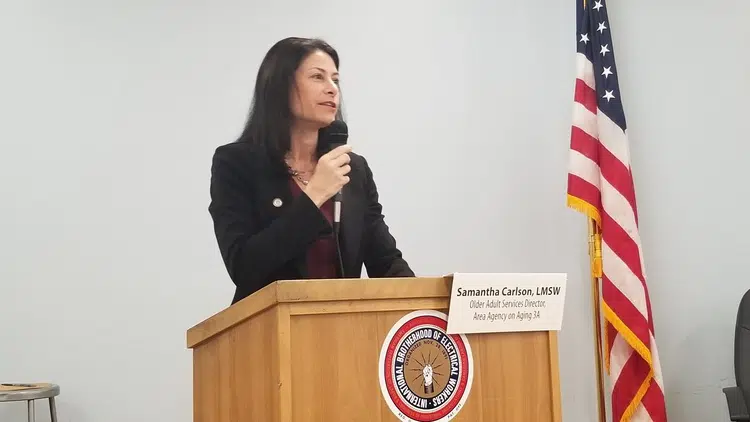LANSING, MI (WKZO AM/FM) — Monday, Michigan Attorney General Dana Nessel and the Michigan Public Service Commission (MPSC) joined with utilities, government agencies and other advocates across the country in recognizing Utility Scam Awareness Week, which helps educate the public about common tactics swindlers posing as utility companies use to defraud people of money.
Utility Scam Awareness Week, Nov. 16-20, is sponsored by Utilities United Against Scams, an organization of U.S. and Canadian utilities and trade organizations formed to help combat fraud and inform and protect customers.
The MPSC typically sees a rise in complaints this time of year from Michiganders on the receiving end of calls in which scammers threaten to shut off service if customers don’t take immediate actions that include making payments by gift cards, Bitcoin or other forms of payment.
The increase in complaints also includes instances where callers manipulate caller ID to make it appear as if a utility company is making the call, commonly referred to as caller ID spoofing.
“We want Michiganders to know that utility companies do not use coercive scare tactics over the phone to force customers to pay bills, and they won’t tell you your service will be shut off immediately without a payment,” MPSC Chair Dan Scripps said in a statement. “That kind of behavior is a dead giveaway that the caller is a scammer.”
Officials add that utility companies also will not:
- Endorse or require a prepaid debit card, gift card, Bitcoin or other cryptocurrency for payments;
- Collect payment at customers’ homes or businesses; or
- Ask for Social Security numbers, bank account or credit card information by phone.
“If you get a call or a text message like this, hang up right away and verify the person contacting you is who they claim to be,” Attorney General Nessel said in a statement. “If you have any doubt about a caller, or suspect the call may be fraudulent, contact your utility using the phone number on your most recent bill and ask to speak to a customer service representative. You should also file a complaint with my office so the proper authorities can respond accordingly.”
Additionally, utility companies will not use coercive tactics to try to get into your home. They require employees or contractors to wear company identification badges employees will show if asked.
“It’s up to Michigan utility customers to be vigilant and recognize when callers are not who they say they are,” director of the Michigan Department of Licensing and Regulatory Affairs (LARA) Orlene Hawks said in a statement. “I’m pleased that the MPSC takes an active role this week and year round to help utility customers be on guard against scammers who often target vulnerable people, including seniors.”
The MPSC urges customers to be mindful about providing their account numbers or personal information such as name, address, date of birth or Social Security number. Utility customers who have mistakenly provided bank account information to someone they suspect might have been an impostor should call their bank and local police department.
They also may le a complaint with the Attorney General’s Consumer Protection Division at www.michigan.gov/agcomplaints and the Federal Trade Commission at 877-382-4357.







